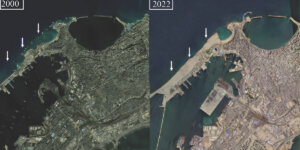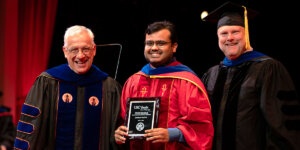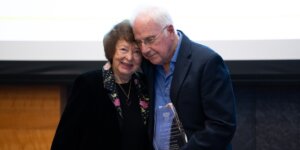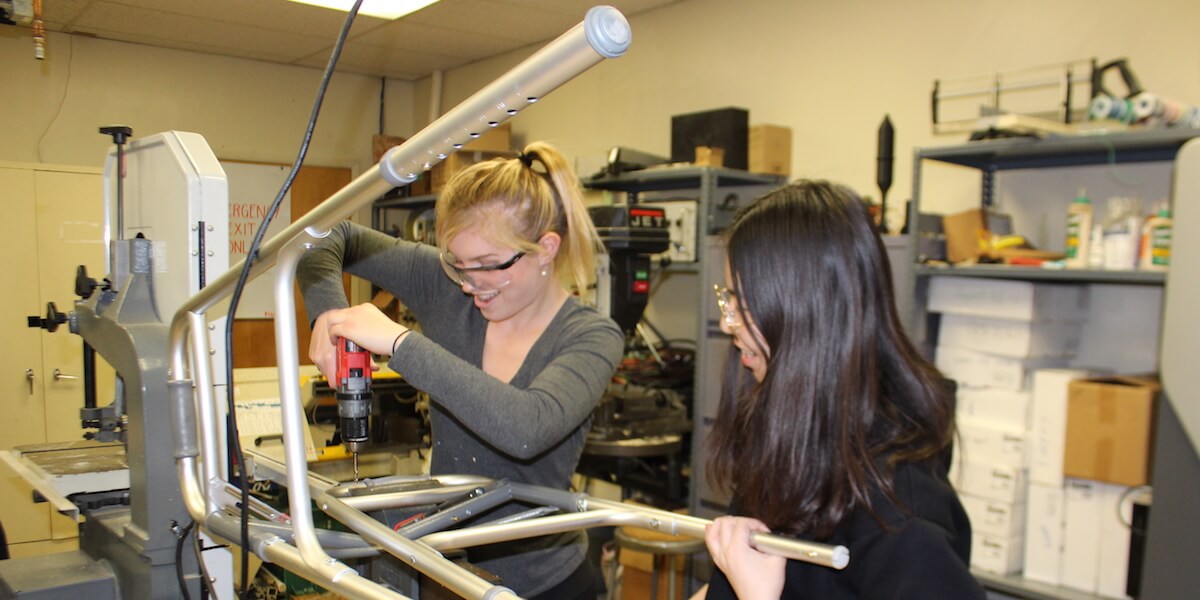
The award-winning IntuiStride intuitive walking aid takes shape at the 2019 ASBME Makeathon. PHOTO/ASBME
A new walking aid to help patients with Parkinson’s disease claimed top honors in the 2019 USC Associated Students of Biomedical Engineering (ASBME) Makeathon, a weekend-long contest for the med-tech creators of the future.
Eleven teams of five engineering students gathered on February 9 and 10 for a whirlwind two days, devising novel solutions to problems in assistive technology.
This year’s challenge required students to create a new device, or a modification of an existing device, to improve the walk cycle of a person with Parkinson’s disease.
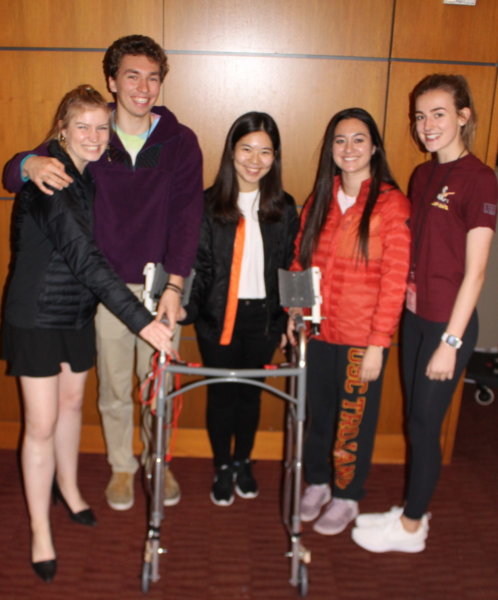
The winning team with their IntuiStride (L-R) Skylar van Sijll MacMillan, Sean McNeely, Elaine Chen, Kaelyn Takamoto, and Elisabeth Vehling PHOTO/ASBME
Common Parkinson’s symptoms include hunched posture when walking, smaller steps and a freezing of the gait, or a difficulty moving forward. As such, Parkinson’s patients are at high risk of injury from falling. The IntuiStride, an intuitive walker to address this dangerous problem was the brainchild of winning Viterbi School of Engineering students Skylar van Sijll MacMillan, Sean McNeely, Elisabeth Vehling, Kaelyn Takamoto and Zhelan (Elaine) Chen.
Vehling said that there were currently no walkers on the market that include a brake mechanism intuitive enough to use quickly if a person’s walker slipped out of their control.
“We noticed that traditional standard walker designs were incredibly unintuitive to use properly without the guidance of a physician or physical therapist, and took note of how improper usage can lead to a myriad of other problems,” Vehling said.
The IntuiStride includes spring-loaded arm guides that comfortably maintain the patient’s arms in the best position to prevent overreliance on or misuse of the walker. The guides are connected to bilateral braking mechanisms on the walker’s front wheels. When leaned on, the guides compress to activate the breaks.
“This was designed specifically so that if a patient lost control of the walker, for instance if the walker slides too far out in front of them causing them to fall or injure themselves, the brakes would automatically engage,” Vehling said.
“Our primary goal with IntuiStride was to increase the patient’s confidence in their safety, which would ultimately allow them to be more independent outside of the physician’s or therapist’s office,” she said.
MacMillan said the team’s project also incorporated electronic stimulation for the patient, with arm guides embedded with vibration pads connected to a button.
“A lot of research has come out showing that giving Parkinson’s patients sensory cues, such as a tactile pulse, can help their walking rhythm and improve their gait. Pressing the button toggles a vibrating pulse sent through the forearm for patients who may benefit from that type of a walking aid,” MacMillan said.
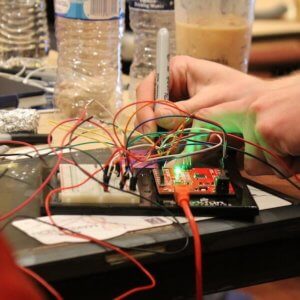
Student were mentored by industry professionals as they designed and manufactured their prototypes over the Makeathon weekend. PHOTO/ASBME
Vehling and MacMillan said the team was eager to continue developing the IntuiStride, and they hoped to compete in future hackathons.
“I would definitely recommend trying a Makeathon to anyone interested in designing and building,” MacMillan said.
ASBME Chapter President Luann Raposo said the Makeathon was launched in 2016 to give USC Viterbi students the opportunity to take part in real-life, application based biomedical projects.
“This event provides students interested in biomedical-related fields a hands-on opportunity to solve a real-world problem in a collaborative environment. By working in teams, students engage in an interdisciplinary sharing of knowledge in order to solve a time-sensitive problem,” Raposo said.
She said that this year, the organizing team improved the event by offering three different technical skills workshops to build students’ skills in areas such as CAD, Arduino, and 3D-printing.
“We also made it a priority to connect the students to patients, therapists, and engineering mentors. Throughout the competition, we had Occupational Therapy and engineering PhD students, industry engineers from Oracle, and many other diverse professionals mentoring the students,” Raposo said.
Watch ASBME’s video about their 2019 Makeathon:
Published on March 21st, 2019
Last updated on March 21st, 2019




